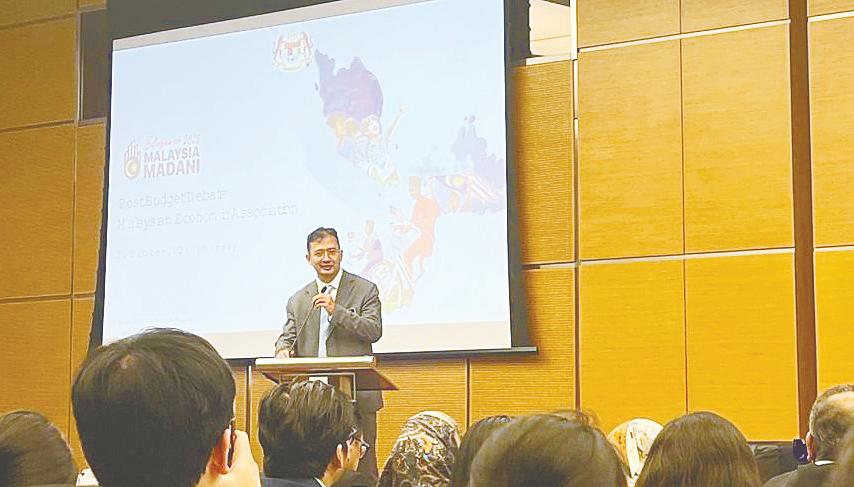KUALA LUMPUR: The government has taken a progressive approach to taxation in Budget 2025, where individuals pay higher tax rates as their income increases, said Treasury Secretary-General Datuk Johan Mahmood Merican.
He pointed to the government’s plan to implement a 2% tax on dividend income exceeding RM100,000 for individual shareholders starting in assessment year 2025.
“Why not introduce an additional 2% tax for individuals earning over RM100,000? Currently, those with an income of RM100,000, including you and me, are already paying a 19% tax rate. So, what’s the issue with requiring those who earn more than RM100,000 in dividend income to contribute an extra 2%?” he asked, when speaking to reporters after the post-Budget 2025 debate at Sasana Kijang here today.
Johan explained that, based on a 5% dividend yield, an individual earning over RM100,000 in dividend income would likely hold shares valued at RM2 million or more. “The government sees this category as being able to contribute towards its efforts to expand the tax base. Doing so would generate additional resources that can benefit the public.”
He said the prime minister believes taxes should be fairly distributed across different segments of society, focusing on those who are financially able to contribute.
Furthermore, Johan said, the government has not ruled out Goods and Services Tax (GST) in the tax reform plan. “Certainly (GST) not out of the question. We continue to look at ways to improve our tax system. But this is the sequencing, and this is the approach that we take.”
Johan said GST is widely recognised as an efficient and transparent method of taxation. “However, by its very nature, GST is a regressive tax. Introducing such a tax is difficult, especially when the majority of the population is still grappling with rising living costs.”
This is why the current Budget prioritises raising minimum wages in terms of reform timing – potentially as a first step before considering a review of GST in the future, he added.
Johan said Malaysia’s investor incentives are aimed at attracting large capital investments, promoting higher-income job creation and supporting local businesses. “In terms of how we revise our investor incentives, we want to promote investments that are not just large in capex value but also better at creating higher-income jobs and getting it to domestic vendors.”
On another matter, the government, Johan said, is committed to ensuring that 85% of the fuel subsidy recipient group continues to enjoy benefits when the rationalisation of the RON95 subsidy is implemented in the middle of next year.
The government is in the process of detailing the implementation mechanism for targeting the RON95 subsidy to ensure that leakage issues can be addressed, he said.
Johan noted that the 15% group, which includes the ultra-wealthy and non-citizens, consumes 40% of the fuel subsidies allocated by the government each year. Therefore, he said, the situation needs to be addressed to reduce subsidy leaks to these groups.









